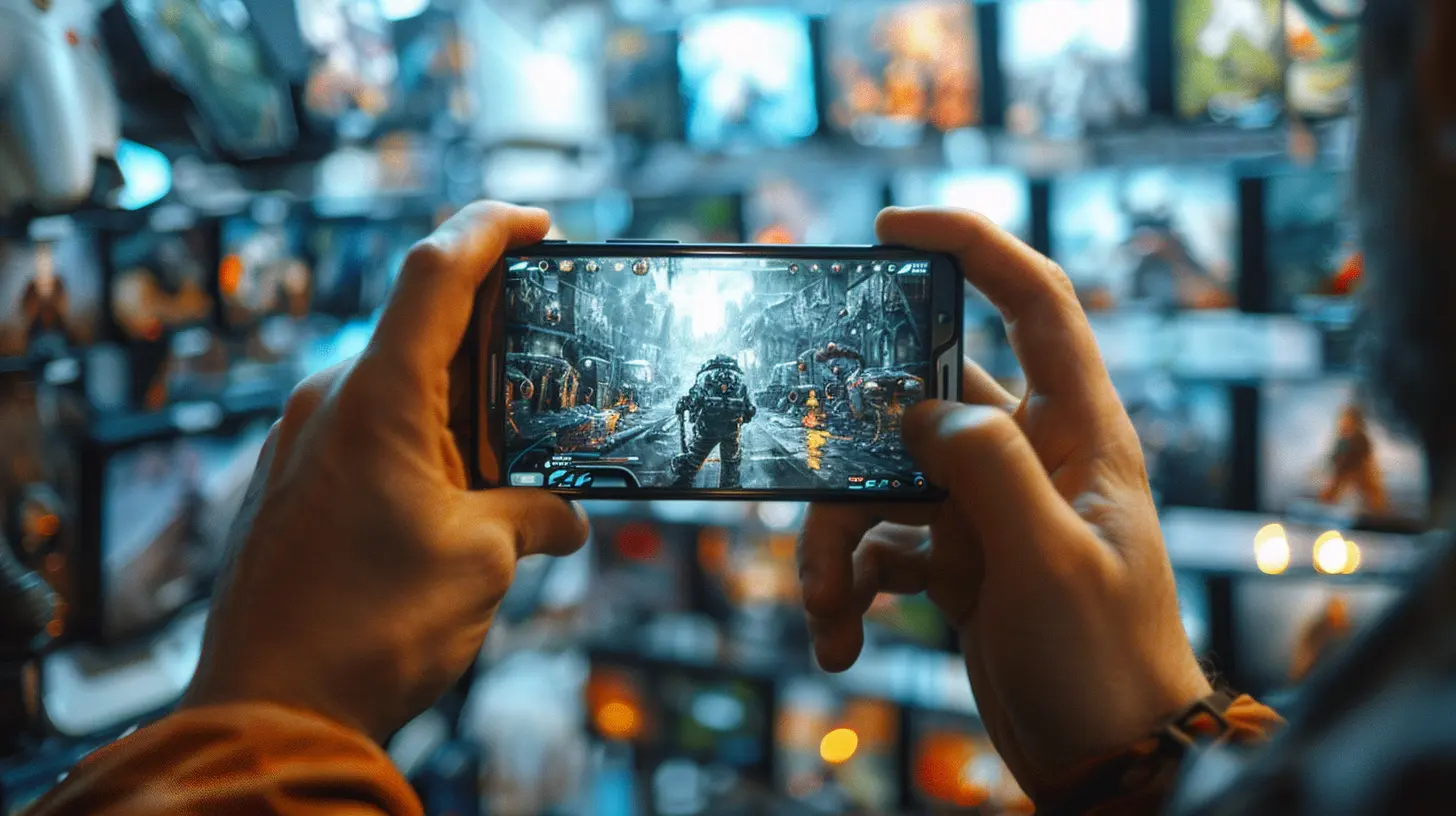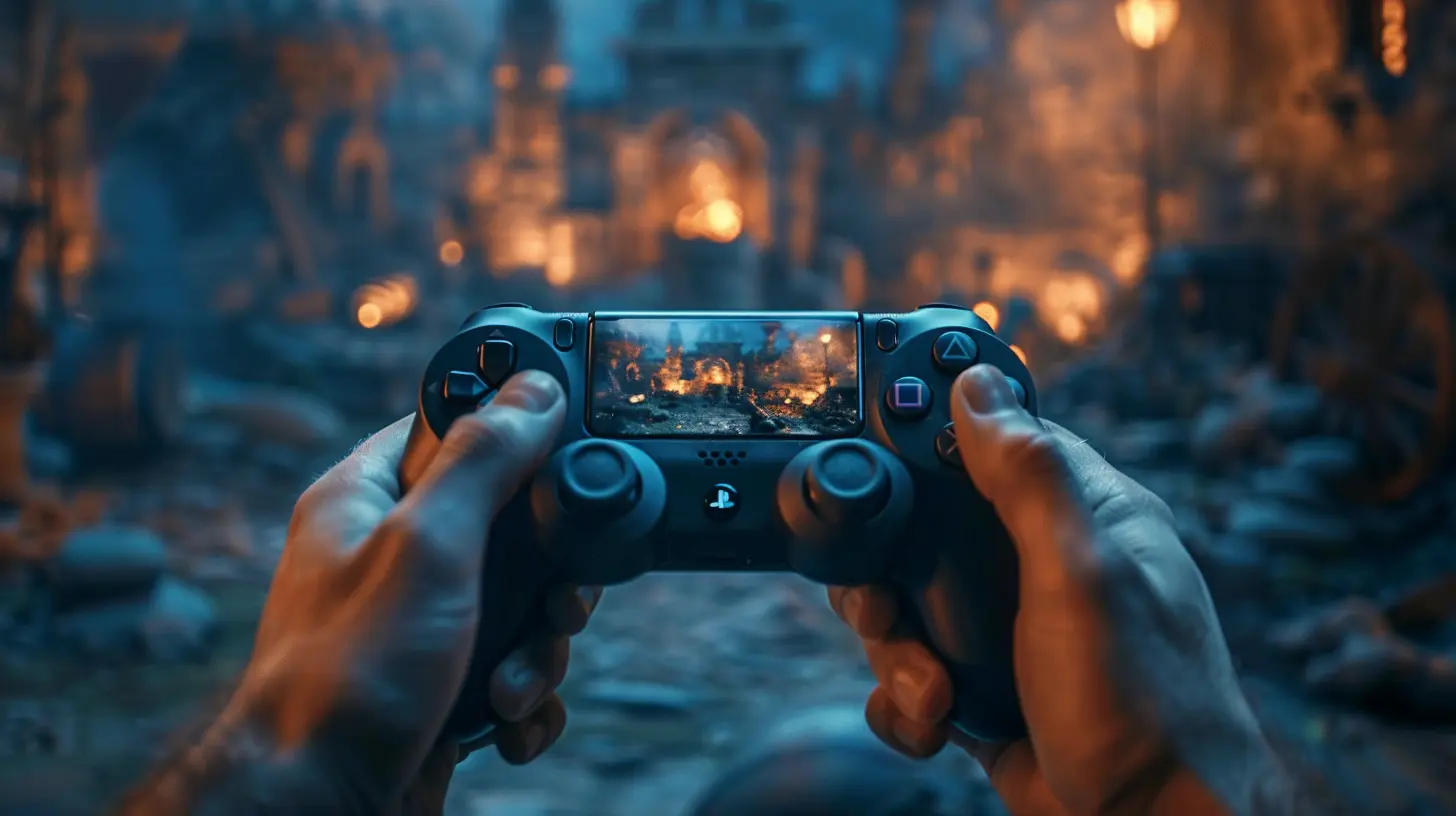The Rising Influence of Mobile Games in Game Award Nominations
21 October 2025
In the past, when you heard about blockbuster video games or award-winning titles, your mind probably jumped to console giants like The Last of Us or PC juggernauts like World of Warcraft. But times, my friends, are a-changin'! Mobile games—the same ones you can play on your couch, in a coffee shop, or while waiting in line at the grocery store—are starting to take the spotlight at gaming award shows. And honestly? It’s about time.
The days when mobile games were just glorified time-killers (I see you, Candy Crush) are long gone. Mobile gaming is now a massive industry, and its influence is creeping into areas once dominated by AAA titles. But why is this happening? How did mobile games go from being the underdog to standing shoulder-to-shoulder with traditional console and PC games? Well, let’s break it down. 
Mobile Games: From Casual Fun to Cultural Phenomenon
Let’s face it: mobile games used to have a bad rap. They were often categorized as "casual" games, and for a while, they were dismissed by "hardcore gamers" as being too simple or shallow compared to complex console or PC titles. But take a look around today, and you’ll see how the narrative has flipped on its head.Mobile games like Genshin Impact and PUBG Mobile have proved that phones aren’t just for endless runners or tapping on candy-colored tiles. These games bring extraordinary graphics, immersive worlds, and complex gameplay mechanics to the palm of your hand. They offer experiences that rival, and sometimes surpass, what traditional gaming platforms can deliver.
Think about it: we’ve hit a point where people are carrying devices in their pockets capable of running intricate, high-quality games. That’s the equivalent of carrying a PlayStation in your back pocket (without the terrible idea of sitting on it). 
Breaking Barriers: Why Mobile Games Are Being Recognized
So, what’s driving this surge of mobile games in award nominations? Let’s get into it.1. Unmatched Accessibility
First up, mobile games are simply... everywhere. With billions of smartphone users worldwide, mobile gaming has a massive built-in audience. You don’t need a $500 console or a $2,000 gaming PC to play these games—all you need is a smartphone, which most people already have.This accessibility is a game-changer (pun intended). By putting gaming in the hands of literally billions of people, mobile games have become the gateway to gaming for a lot of folks who wouldn’t traditionally consider themselves "gamers."
2. Technological Advancements
Let’s take a moment to appreciate how insanely powerful smartphones have become. We’re talking about processors and GPUs that can handle console-like graphics and gameplay. The visuals in games like Call of Duty: Mobile or Genshin Impact are absolutely breathtaking, especially when you remember you’re playing on your phone.Plus, cloud gaming services like Xbox Cloud Gaming and NVIDIA GeForce NOW are bridging the gap even further, allowing mobile gamers to stream AAA-quality games with just an internet connection. This leap in technology is making mobile games more competitive than ever.
3. Diverse, Engaging Content
Mobile games understand their audience, and boy, is that audience diverse. Whether you’re into puzzle-solving (Monument Valley), fast-paced shooters (PUBG Mobile), or epic RPGs (Genshin Impact), there’s a mobile game for you.Developers are also incorporating innovative storytelling and unique gameplay mechanics that rival the creativity of traditional games. Case in point: games like Florence tell deeply emotional stories in a way that’s accessible yet meaningful, earning them critical acclaim and recognition in award ceremonies.
4. E-Sports and Competitive Play
Look, if you still think mobile games are all about casual fun, let me hit you with some facts. Mobile esports are exploding. Games like Free Fire, Arena of Valor, and Clash Royale have not only massive player bases but also thriving e-sports scenes, complete with international tournaments and cash prizes to make your jaw drop.This competitive edge has made mobile gaming a serious contender in the gaming industry. When you see large-scale tournaments being hosted for mobile games, it's no wonder they’re grabbing the attention of award committees. 
How Mobile Games Are Leaving Their Mark at Awards
Now, let’s talk specifics. How exactly are mobile games gaining recognition in prestigious game award ceremonies?1. Dedicated Categories
Many award shows have started adding dedicated categories for mobile games, such as “Best Mobile Game” or “Best Mobile Performance.” This wasn’t the case a decade ago, and it’s a clear sign of how far mobile gaming has come.Games like Among Us and Genshin Impact have swept categories like these in recent years, going head-to-head with traditional games and showing that mobile titles are no longer a side hustle—they’re leading the charge.
2. Mainstream Crossovers
Then there are the crossover hits. Some mobile games get so big they transcend the industry. Look at Pokémon GO. It wasn’t just a game—it was a cultural phenomenon. People of all ages were running around, catching Pokémon, and making headlines across the globe.Games like this don’t just win awards—they redefine what gaming can mean to the public. Award shows can’t ignore them because they’re so universally impactful.
3. Indie Showcase
One of my favorite things about mobile gaming is how it’s become a playground for indie developers. Award shows love showcasing indie titles because they often bring fresh perspectives and experimental gameplay. Mobile platforms have allowed these small teams to get their work in front of millions without the need for massive budgets.Take Monument Valley, for example. This indie gem captured hearts with its stunning art style and mind-bending puzzles, earning accolades and making people rethink what’s possible on mobile. 
The Future of Mobile Games and Awards
So, where is this all heading? It’s pretty clear that mobile games aren’t just riding a trend—they’re reshaping the industry. With the rapid evolution of tech, mobile games will only become more immersive and innovative.It’s not hard to imagine a future where mobile games are not just winning dedicated categories but also competing head-to-head with console and PC games for Game of the Year. Who’s to say that future isn’t already here?
As developers continue to push boundaries and audiences demand more from their pocket-sized powerhouses, mobile games will keep climbing the ladder of recognition. And honestly? I’m here for it.
Conclusion
The rising influence of mobile games in game award nominations isn’t just a fluke—it’s a reflection of how far the industry has come. From groundbreaking storytelling to jaw-dropping visuals and thriving competitive scenes, mobile games have proved they’re more than just a passing fancy.So next time you see a mobile game nominated alongside console titans, don’t be surprised. Grab your phone and give it a shot—you might just find the future of gaming right in your pocket.
all images in this post were generated using AI tools
Category:
Game AwardsAuthor:

Lana Johnson
Discussion
rate this article
1 comments
Lana Potter
Mobile games at the awards? Finally, my thumb's years of dedicated training are paying off! Next up: a category for 'Best Snack-Playing Position'—because we all know the real MVPs!
October 25, 2025 at 3:12 AM

Lana Johnson
Haha, love that idea! Mobile gaming has definitely earned its place, and those snack-playing positions deserve recognition too! 🍕🎮


